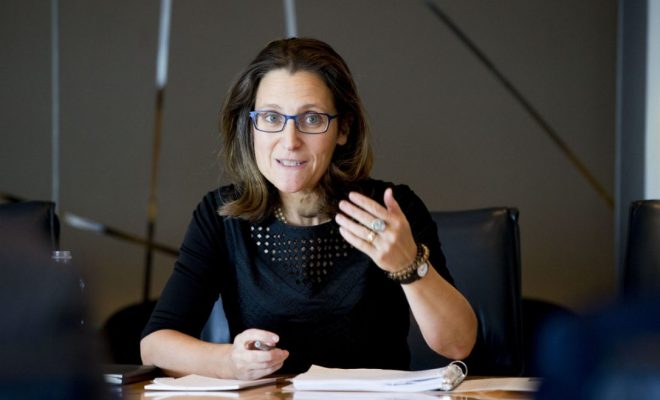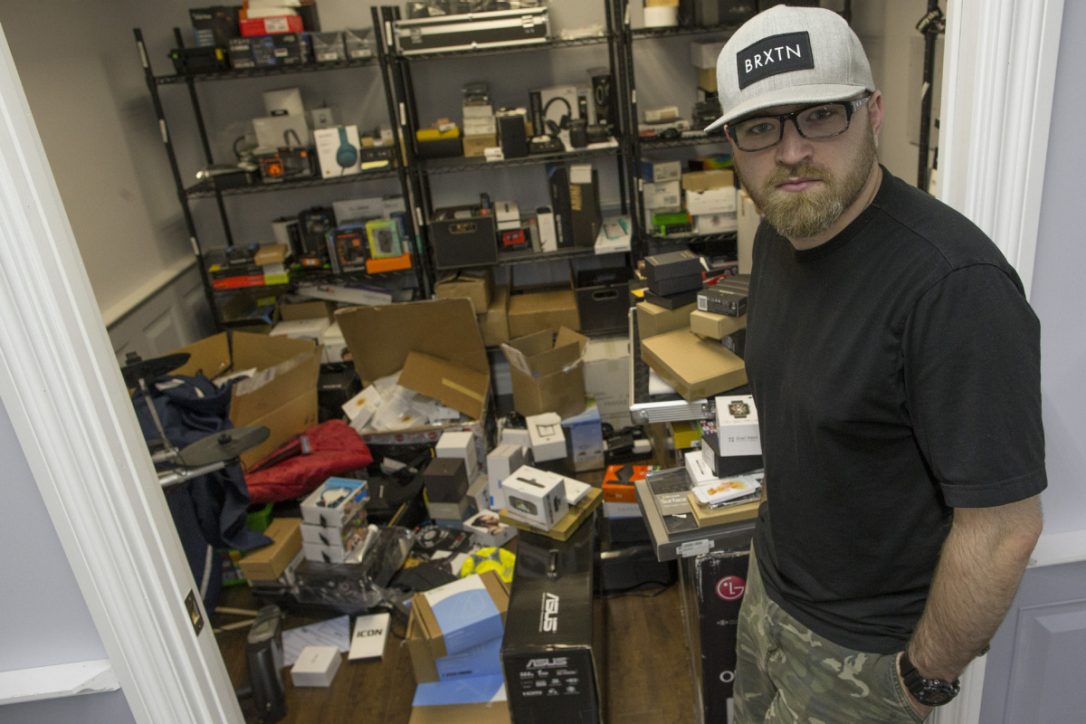Some flexibility on NAFTA’s regional rules of origin, Freeland says

While the Trump administration’s demand for a made-in-America content rule within an updated NAFTA remains a non-starter for Canada, Foreign Affairs Minister Chrystia Freeland has signalled some flexibility on the issue of regional rules of origin.
“We are very clear about the national content idea. That is not something Canada can accept. It is an unprecedented proposal,” Freeland told the Star’s editorial board on Friday.
But on regional content, the so-called rules of origin, “that is an area where we are having a conversation . . . that’s an area (where we) are talking and are prepared to talk.”
Rules of origin provide the basis for customs agents to determine which goods are entitled to preferential tariff treatment under the North American Free Trade Agreement between Canada, the U.S. and Mexico that came into force at the start of 1994.
Freeland left the door open to a Canadian proposal on the rules during subsequent NAFTA talks. In the wake of the just-concluded fifth round of talks in Mexico City, U.S. trade officials criticized Canada as unwilling to compromise or to present its own counter offers.
In October, the U.S. made good on a long-rumoured auto manufacturing content proposal that has been dismissed as protectionist and outlandish by Canada, Mexico, unions and car companies.
It would mean that a vehicle needs be composed of 50 per cent American content to avoid tariffs. At present, there is no American-content rule: NAFTA requires only that a car include 62.5-per-cent content from North America as a whole.
That proposal fuelled pessimism about the chances for successful renegotiation of the trade deal, and although Freeland said there remains potential for “a very positive outcome” and common ground between the U.S. and Canada in areas such as labour standards, she reiterated that there “is no give there” when it comes to country of origin. “The whole point of a trading agreement is to create a space where you trade freely,” she said.








